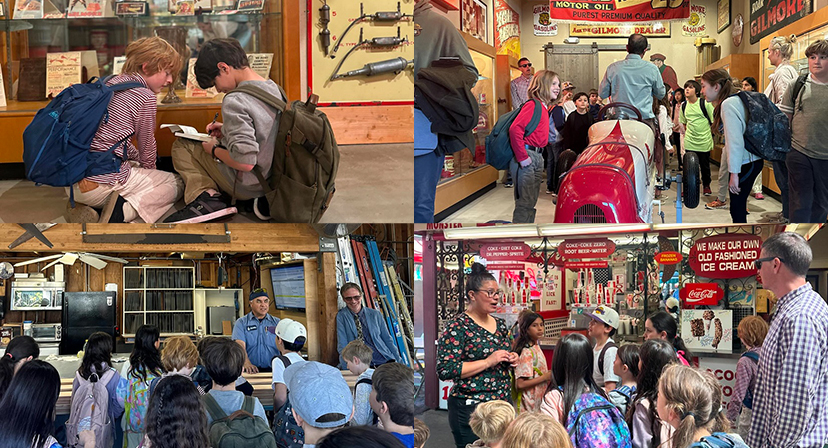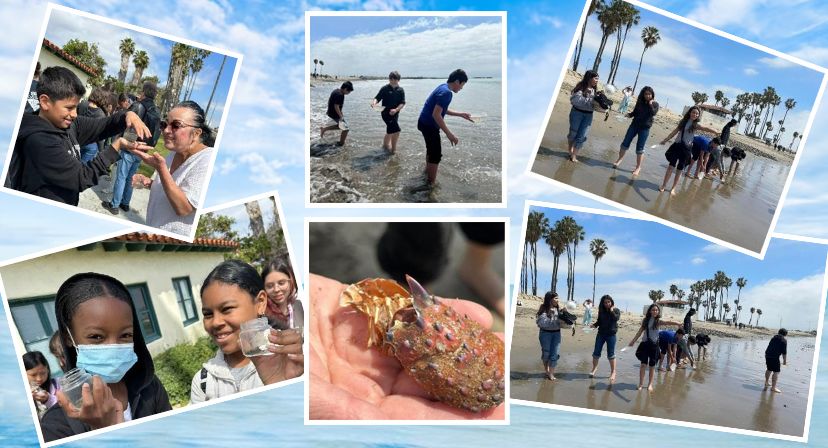PUSD: A Holistic Approach to Learning

Feeling connected, safe, and engaged in school shape children’s learning and development. The Pasadena Unified School District (PUSD) has an organized array of social-emotional support programs to nurture the whole child’s behavioral, emotional, and academic success.
“We want our students to graduate healthy in mind, body and spirit so that they can enter college and the workforce confidently as productive citizens of the 21st century,” said Mercy Santoro, Associate Superintendent of School Support Services. “Our schools are becoming places where learning is nurtured, students and families are welcomed, and where we are all responsive to the needs of students and their families.”
According to the California Department of Education, a growing body of research shows that school climate strongly influences students’ motivation to learn and improve academic achievement. When school members feel safe, valued, cared for, respected, and engaged, learning increases. Schools that provide students with support to meet these basic needs allow them to grow socially and emotionally and avoid problems ranging from emotional distress to drug use to violence—in addition to helping them achieve academically.
School climate includes major areas of school life such as relationships, teaching and learning, and safety.
“There’s a direct correlation between the child’s social-emotional well-being and their academic achievement,” says Eric Sahakian, Executive Director of the district’s School Support Services and Office of Child, Welfare, Attendance and Safety (CWAS). “Positive school environments that foster youth development and learning motivate students to achieve at higher levels and navigate school successfully. Their interactions with peers become more positive; they develop healthy habits, and become productive and resilient.”
With the adoption of its graduate profile, Pasadena Unified has shifted its mindset in addressing student behavior and discipline, and focuses on supporting the whole child toward positive behavior that leads to their academic success.

CWAS is spearheading the shift to a trauma-informed approach to addressing student behaviors. The approach realizes the widespread impact of trauma and understands potential paths for recovery, recognizes the signs and symptoms of trauma in students, families, staff, and others involved with the district, and responds by fully integrating knowledge about trauma into policies, procedures, and practices.
School and district staff is receiving professional development in the approach, including training in Youth Mental Health First Aid. To strengthen and build supports in the home, CWAS is developing parent education programs.
Bailey The array of services and programs managed by the district’s Office of Child Welfare, Attendance and Safety are part of an infrastructure designed to ensure that all children and youth thrive. Programs include:
• School Safety to keep students safe both on campus and as they travel to and from school. Through a positive culture of discipline based on respect for the individual, others and their property, schools offer learning environments where student safety is inherent. All schools are staffed with school security officers trained by the Pasadena Police Department. The Pasadena Police Department also provides dedicated officers on the district’s middle and high school campuse
• Emergency Preparedness programs train, and equip school and district staff to keep children safe both during and after disasters. All schools and offices participate in annual district wide drills.
• Behavior RTI: Response to Intervention approach is used to support positive student behavior at schools. School staff is trained to apply a structured, multi-tiered problem-solving process to address discipline and deliver interventions that match the student’s needs, instead of reacting punitively.
• Attendance programs ensure that students are in class, engaged and ready to learn. Because attendance is an indicator of deeper issues, district and school staff help the children and families address barriers to school achievement. Attendance programs include School Attendance Review Teams, the School Attendance Review Board for students who are truant, and Attention2Attendance.
• Bullying Prevention to prevent and address the harassment or intimidation of students
• Student Discipline and responses to inappropriate conduct range from warnings to suspensions and its alternatives to expulsion.
• Alternative Education Placement to place students in school settings that better serve the student’s academic, social, emotional or developmental needs.
• Section 504 Plans are developed with services for students with a physical or mental impairment that substantially limits one or more major life activities, including learning.
• Mental Health, Social Supports and Services deliver comprehensive, integrated, and culturally sensitive services to address barriers to the child’s learning and achievement. In times of crisis, the district’s crisis response team of mental health professionals supports schools when traumatic incidents occur on or near campuses.
• Mentoring services are provided to at risk students who struggle with attendance, behavior, or academics. Weekly mentoring workshops bring students together with specially trained staff, adult and peer mentors to model positive behaviors and build connections.
• Foster Youth services for the district’s 400 students in foster care ensure that these vulnerable children get access to the academic programs and extracurricular and enrichment activities available to all students.
• Health Programs strengthen the education process by helping each student reach their full potential in physical, mental and social growth. Programs include asthma education, children’s health insurance outreach, five Healthy Start Family Centers, health clinic, immunizations, nursing services, sports physicals for PUSD athletes and the vaunted Farm to School and school gardens initiatives.
• Families in Transition connects homeless and transitional students and their families to the appropriate services to stabilize a student’s environment so they can grow personally and academically.
“We serve the whole child and connect families to services and resources,” says CWAS Coordinator Charel Bailey. “We are here to support you and your family. Our ultimate goal is your ultimate goal and that is the graduation and success of your child.”
Pasadena Unified School District, 351 S. Hudson Ave. Pasadena, (626) 396-3600 or visit www.pusd.us.



















